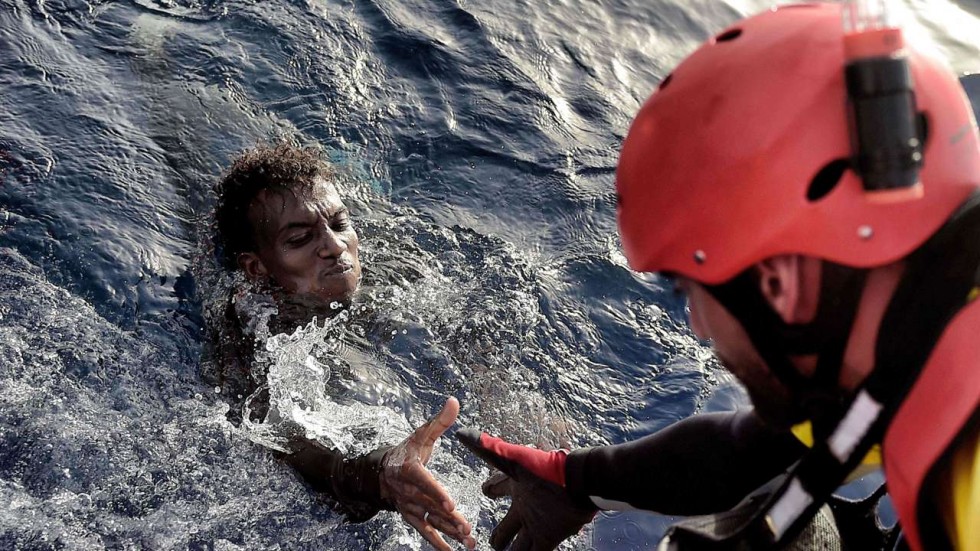[Warning: In places I find it hard to understand what I am trying to say! Help appreciated.]
My previous blog makes the (simplistic) argument that the label “refugee” does scant justice to the reality of millions of people forced from their homelands by violence and destruction in which Western governments has played a significant role. The term “refugee” builds too weak a case. It underplays their actual history.
A weak case, however, is not the primary harm to the refugee. The primary harm lies in the attendant displacement, not the displacement of people but the displacement of disciplines, approaches and paradigms that might have more ably defended these people/refugees. And it is we in the humanitarian community, or the more specialized community that fights for refugee rights, who have elbowed out these other communities. Would ambulance chasing plaintiff attorneys be able to construct a successful claim for residency as compensation for an Iraqi fleeing war and ISIL? Or maybe not an attorney at all, but a wheeler-dealer businessman, or a military negotiator, professionals unopposed to horse trading, able to traffic in compromise and the crude use power? Or maybe disruption and violence – a refugee exercise of power to replace their submission to a stacked deck of a legal regime?
It is not so much communities that are displaced by our elbowing, but the paradigms in which they operate. The “refugee” label belongs to a particular set of discourses (professional, personal, political) and to a specific world view. It lives within a particular framework. It offers a home to me and people like me in terms of its thinking and values – progressive, do-gooder, legal, humanist, justice-fighter, not-a-banker-thank-goodness, etc. There is hence a lovely power in that label, allowing me to cultivate a self-image full of virtues. For that reason alone I am, like many others, well-wired to hold onto it with clenched fists, unconsciously perceiving my world through its lens. Put differently, I work within a structural aversion to recognizing what might have been. By way of illustration, David Kennedy’s analysis of human rights reaches a parallel conclusion, that it “encourages people to seek emancipation in the vocabularies of reason, rather than faith, in public rather than private life, in law rather than politics, in politics rather than economics.” (David Kennedy, The Dark Sides of Virtue).
It is no coincidence that this displacement ensures my privileged position within the sphere of the refugee. There is no finer feeling than to stand erect in the fight for the downtrodden! We act as their champions, complete with a loud admiration for their drive, resilience and strength. Within this world (and not that one) displacement leaves people like me as the high priests and anointed speakers. That in itself is not a problem. Not knowing, feeling or seeing it is a problem. Certainty of its Truth is another. A less fundamental example of the power of the paradigm, one that has finally been exposed, is the process by which the aid response to migrants, refugees and IDPs became compartmentalized within humanitarian action, rendering invisible needs and aspirations of a long-term or developmental nature, even as camps morphed over decades into lifelong settlements.
One way to look at it is that we rule by the blessing of segregation, in this instance taking the form of compartmentalization. As we bear witness to the transfer of power in the US it strikes me as a good time to think more about this segregation. More dangerous than ever-sharpening global inequality is the degree to which the haves will maintain this inequality through a web of segregations. Segregation of neighborhoods, healthcare, education, cross-border mobility and perhaps soon human genetics; segregation within communities and across nations. A simple litmus test: Does the status quo work in your favor or not? It does pretty damned well by me.
The world of the haves will protect its interests by building Trumpian walls, and has been doing so for generations if not longer. In part, it will drive further inequality via a sanitized segregation, avoiding the horrors of Jim Crow and Apartheid, replacing such racist ugliness with the institutionalized compassion of aid, peacekeeping and 5-pronged fixes after technocratic fixes. Is it clear to humanitarians that we form part of the haves? Issue by issue we side with them, perhaps as their less wealthy (but living quite comfortably — thank you for your donations) brethren, perhaps as an agent of their business. As in the fight for refugee rights, we will thump our fists and push for change, but will do so while posing no threat to the paradigm, in fact thumping our fists just as urgently to protect it.
[Note: Twelve hours after the original posting I made several changes in wording. For better or worse, substance remains the same.]
